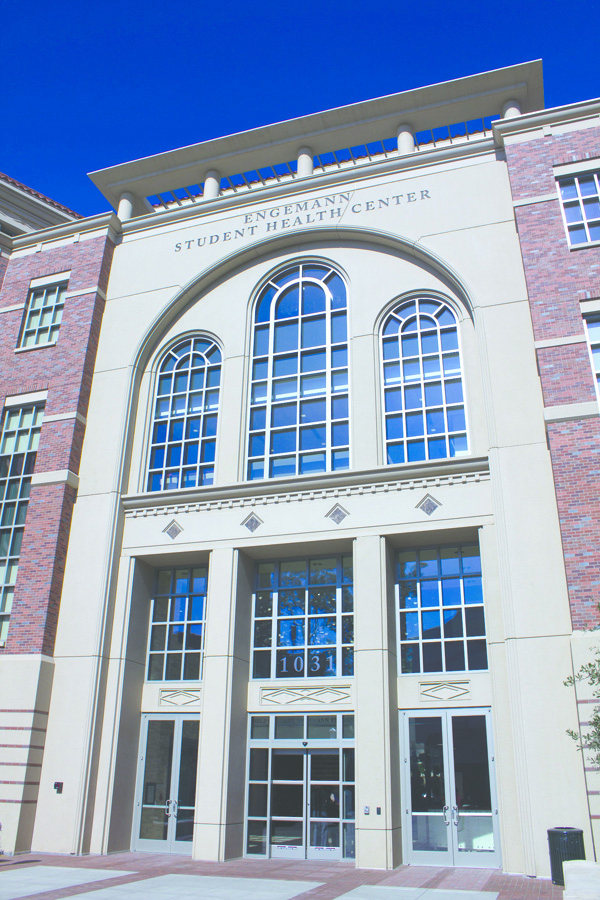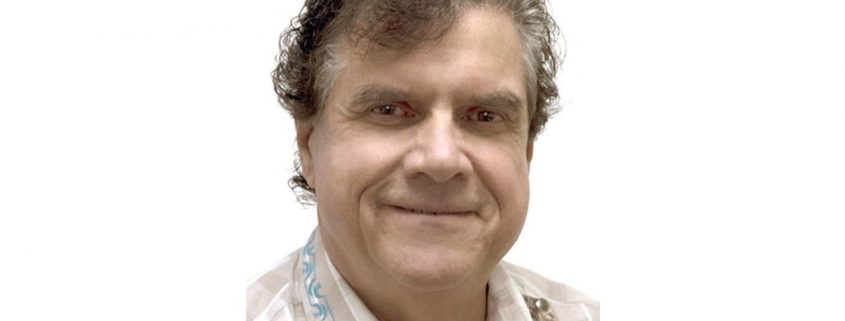Court releases secret report that details decades of complaints against George Tyndall
USC made public previously confidential report detailing decades of complaints against former USC gynecologist George Tyndall Thursday. The documents are evidence in a federal class-action lawsuit against Tyndall and the University.
The 600-page report comprises letters, surveys and memos that detail various complaints about Tyndall and his treatment of patients, providing information about the University’s knowledge of Tyndall’s alleged sexual abuse.
“We recognize how difficult this has been for these patients and our community,” wrote Interim President Wanda Austin in an email to the USC community on May 23 that linked to the documents. “Our top priority continues to be healing our community, moving forward with important institutional changes and ensuring the safety of our students and patients at all times.”
The University made the documents public after the Los Angeles Times requested to gain access to them via a court order.
After Tyndall’s colleagues brought allegations of sexual misconduct to light in 2016, USC hired MDReview, an independent medical consulting firm, which concluded that the gynecologist displayed a pattern of abuse at USC.
Following the independent review, USC arranged a private settlement with Tyndall that allowed him to resign from his position with financial compensation and his professional reputation intact, according to the Times.
MDReview also found that Tyndall was specifically targeting international Asian students because of their limited English proficiency and understanding of gynecological practices.
Attorneys representing students in the class-action lawsuit and separate suits said the documents support their claims that USC tried to engage in a cover-up.
Todd Becker, the senior partner of Becker Law Group, said he represents mostly international Asian students civil suits against Tyndall.
“He had some sort of fetish toward [Asian students],” Becker said. “He knew they did not speak English well and were in a foreign country. [They] didn’t know what the rules were [or] what was OK and not OK.”
Becker, who has filed five civil cases against Tyndall and the University, said his clients used the same language used by former patients in many of the documents, stating that Tyndall was “creepy” and made inappropriate comments about their body.
“[The documents] only go to strengthen the case and confirm our suspicions and our position regarding our belief that USC had knowledge, and USC didn’t prevent this from occurring,” Becker said.
According to University statistics for the 2018-19 academic year, Chinese students accounted for nearly half of the international student population, which totals 11,308 students.
Becker said he believes the University is not adequately protecting its student body, especially international students.
In February, the University proposed a $215 million class-action settlement with tiered compensation to Tyndall’s former victims, ranging from $2,500 to $250,000. In April, a federal judge delayed the progress of the settlement, citing inadequate procedures of the proposed settlement and a lack of information.
In a statement to the Daily Trojan, Andy Rubenstein, who represents 134 clients in the class action lawsuit, wrote that the documents were evidence of a cover-up by the University.
“We’re now beginning to understand why USC is eager to move forward with this class action settlement,” Rubenstein wrote. “When facts like these start to come to light, we’re going to realize that the magnitude of the cover-up was greater than initially thought.”
There are currently 760 individual cases pending on the state and federal level, according to the report.
The report outlines that during his first ten years at USC — from 1989 to 1999 — Tyndall received various complaints of a non-sexual nature. The complaints ranged from improper prescriptions of birth control and misdiagnoses to Tyndall’s mannerisms.
The report also states that Tyndall saw 18,258 patients from 1999 to 2009. “Fewer than 20” complaints of a sexual nature arose during that decade, the report said.
Former patients and colleagues, however, allege they had complained about Tyndall’s inappropriate conduct and language in oral and written reports before 2000, according to the L.A. Times.
Sexual misconduct complaints increased and became “more concerning” during his final years at USC, from 2010 to 2016, according to the report.
A former patient said that between 2003 and 2005, Tyndall performed an ungloved vaginal examination. Larry Neinstein, Tyndall’s supervisor, documented the incident and brought the issue to the Office of Equity and Diversity, which ultimately took no action given “the lack of corroborating witnesses.” Neinstein followed up with Tyndall and the student, who said she would not pursue further action.
According to the report, USC began to receive complaints that Tyndall was making inappropriate racial and sexual comments in 2013.
One such complaint from April 2016 alleged that Tyndall said, “A Chinese woman has backed up my schedule because she needed a translator,” and in another instance, “Black people have too many children,” according to the documents.

Although the Engemann Student Health Center’s change in leadership — from Neinstein to Jim Jacobs and later William Leavitt — may have complicated the timeline of Tyndall’s behavior and allegations against him, the report said increasing complaints in 2016 led to his separation from the University.
When Tyndall was placed on leave in 2016, USC launched the MDReview investigation, which concluded that Tyndall’s gynecological practices, such as his pelvic exams, were not within medical standards. MDReview’s report also expressed concern about Tyndall keeping photographs of patients’ genitalia for unclear reasons, the Times reported.
“Tyndall never treated another USC patient once placed on leave,” USC attorney Shon Morgan wrote in the report summary. “In January 2017, the OED concluded its second investigation, finding that Dr. Tyndall had violated University policies against racial and sexual harassment.”
Tyndall resigned on Jun. 30, 2017 following “mediation,” according to the report.
Gloria Allred, who represents 62 plaintiffs in the lawsuit, wrote in a statement to the Daily Trojan that the documents prove USC did not adequately respond to the complaints about Tyndall.
“USC allowing Tyndall to resign in 2017 rather than terminating him for cause and reporting him to the Medical Board after receiving more than 20 years of complaints from students and some medical assistants demonstrates gross negligence and misconduct by USC and is inexcusable,” Allred wrote.
Mike Arias, who represents over 160 clients and acts as a co-liaison counsel for the plaintiffs in the lawsuit, stated that the documents confirm the plaintiffs’ allegations.
“USC didn’t and doesn’t want to listen and acknowledge their wrongful conduct,” Arias wrote in a statement to the Daily Trojan. “Unfortunately, as we are continuing to litigate these cases, we are still being told that neither Dr. Tyndall’s or USC’s conduct was suspect or improper.”
In USC’s response to the court’s request to release the documents, Morgan said the documents contrast suggestions that the University tried to conceal Tyndall’s actions.
“The University hopes this disclosure will assist all class members in assessing their options and believes it confirms the class action settlement remains the best option for bringing a fair and respectful resolution to as many former patients of Dr. Tyndall as possible,” Morgan wrote.
This article was updated on May 28 at 9:00 p.m.

